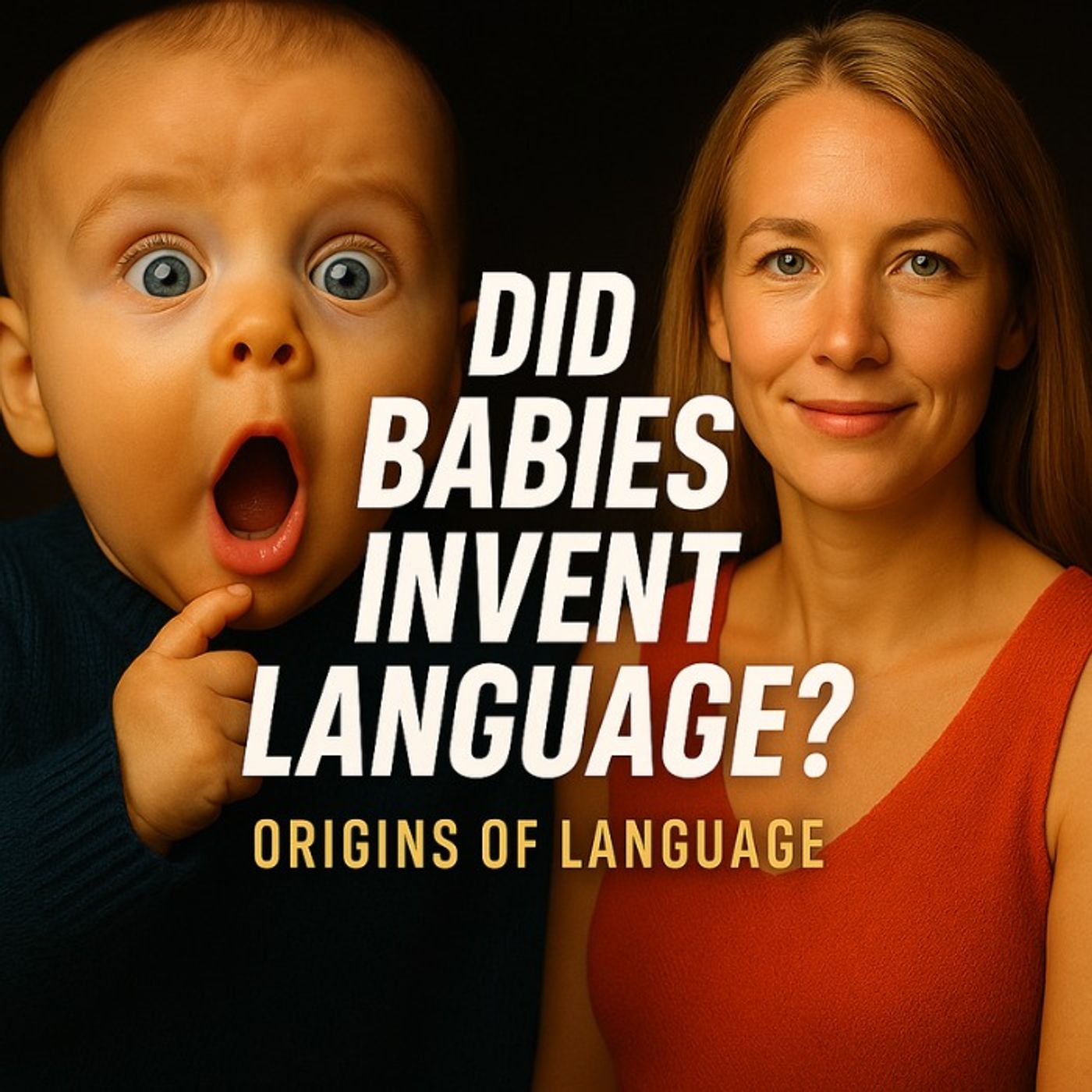E164: The Real Reason You Can Speak: Explained by Evolutionary Biologist - Dr. Madeleine Beekman
Description
How human babies, big brains, and social life likely forced Homo sapiens to invent precise speech ~150–200k years ago—and what that means for learning, tech, and today’s kids.
Guest Bio:
Madeleine Beekman is a professor emerita of evolutionary biology and behavioral ecology at the University of Sydney and author of Origin of Language: How We Learned to Speak and Why. She studies social insects, collective decisions, and the evolution of communication.
Topics Discussed:
- Why soft tissues don’t fossilize; language origins rely on circumstantial evidence
- Three clocks for timing (~150–200k years): anatomy; trade/complex tech/art; phoneme “bottleneck”
- Why Homo sapiens (not Neanderthals) likely had full speech
- Language as a “virus” tuned to children; pidgin → creole via kids
- Second-language learning: immersion over translation
- Bees/ants show precision scales with ecological stakes
- Evolutionary chain: bipedalism → narrow pelvis + big brains → helpless infants → precise speech
- Ongoing human evolution (archaic DNA, altitude, Inuit lipid adaptations)
- Flynn effect reversal, screens, AI reliance, anthropomorphism risks
- Reading, early interaction, and the Regent honeyeater “lost song” lesson
- Universities, online classes, and “degree over learning”
Main Points:
- Multiple evidence lines converge on speech emerging with anatomically modern humans ~150–200k years ago.
- Anatomical and epigenetic clues suggest only Homo sapiens achieved full vocal speech.
- Extremely dependent infants created strong selection for precise, teachable communication.
- Children’s brains shape languages; kids regularize grammar.
- Communication precision rises when mistakes are costly (bee-dance analogy).
- Humans continue to evolve; genomes show selected archaic introgression and local adaptations.
- Tech-driven habits may erode cognition and language skill; reading matters.
- AI is a tool that imitates human output; humanizing it can mislead and harm, especially for teens.
- Start early: talk, read, and interact face-to-face from birth.
Top Quotes:
- “Only Homo sapiens was ever able to speak.”
- “Language will go extinct if it can’t be transmitted from brain to brain—the best host is a child.”
- “The precision of communication is shaped by how important it is to be precise.”
🎙 The Pod is hosted by Jesse Wright
💬 For guest suggestions, questions, or media inquiries, reach out at https://elpodcast.media/
📬 Never miss an episode – subscribe and follow wherever you get your podcasts.
⭐️ If you enjoyed this episode, please rate and review the show. It helps others find us.
Thanks for listening!
























